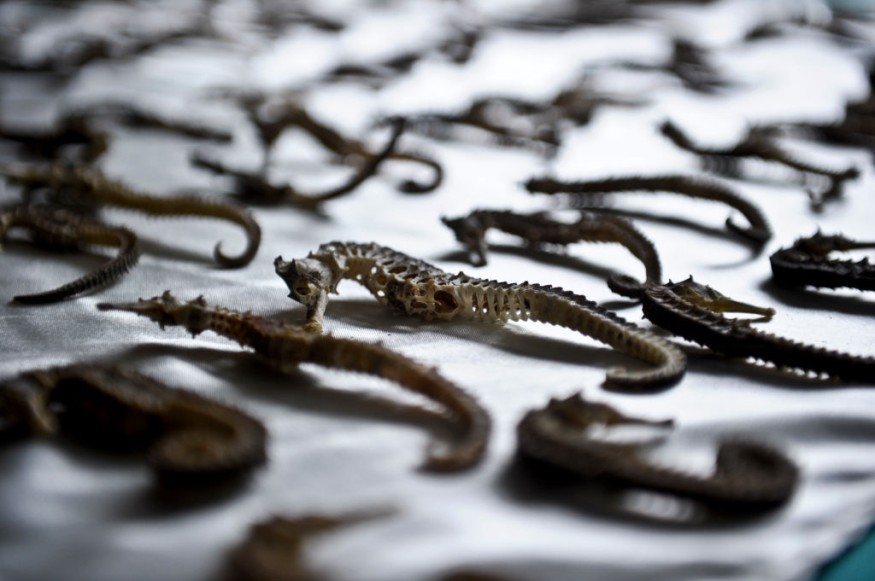
'Traditional food" seized by US customs in an unsuccessful attempt to smuggle the stated commodities from Vietnam included snail ointment, dead snakes, and dried seahorses.
Dead Snakes and Dried Seahorses in the US Customs
Customs officials at Washington's Dulles Airport claimed that there is never a dull moment when it comes to examining luggage after opening the suitcases of two Vietnamese travelers and finding herbal medicine, snakes, and even seahorses.
In two different traveler's suitcases, US Customs and Border Protection agriculture specialists discovered five dead snakes, 77 dry seahorses, 50 little bottles of herbal medicine, five jars of snail ointment, and illegal pork products.
Seahorses, snakes and illegal pork from Vietnam seized by US Customshttps://t.co/0y4IaBXMUv
— Black Gloves Lady (@BlackGlovesLady) September 6, 2023
One of the key components of the commercial herbal liquid remedy found at the airport was snake oil.
The US Department of Agriculture vigorously imposed a ban on confiscated pork products owing to the potential spread of the severe swine vesicular disease and African swine fever.
Traditional Food
According to Steve Sapp, a customs officer, it's not unusual for tourists traveling from different nations to return to the US with "traditional food," even though this particular instance of international smuggling may be unusual.
He explained that particular food items can be limited under the agency's standards for restricted items because they pose a risk of spreading animal or plant diseases.
One of the Vietnamese passengers was headed to Fairfax, Virginia, and had to go through a second baggage inspection.
Inspectors from the US Fish and Wildlife Service and customs experts collaborated in identifying the restricted goods.
Three days later, the other traveler, who was bound for San Francisco, arrived at the airport and underwent the identical procedure.
The two travelers were assumed to be isolated infractions by government officials because they arrived on different days and had distinct destinations.
Officials claimed that the fact that they were both leaving Vietnam at the same time was a coincidence.
According to Sapp, most travelers are not detained for violating agricultural laws; only enough time for CBP agriculture specialists to scrutinize travelers' luggage and accomplish the seizure while they are in the secondary examination area.
The forbidden goods may be seized, and there may also be potential civil fines.
International Wildlife Trading
Sapp further stated that the civil fine that CBP imposes is typically $500 for a repeat offender and around $300 for a first violation.
The tourists broke numerous laws and regulations under the Lacey Act and the Convention on International Trade in Endangered Species of Wild Fauna and Flora, which are both international agreements between nations, even though US customs did not impose civil penalties on them.
According to Special Agent Ryan Noel of the US Fish and Wildlife Service, all wildlife products that are exported or imported into the US must be provided with the appropriate paperwork.
According to authorities, illegal wildlife trading is the principal factor driving some species to extinction and is still a global problem.
The news release estimates that the global wildlife trade is a billion-dollar industry.
Living and deceased animals and plants are used to make food, jewelry, clothes and accessories, tourist souvenirs, musical instruments, and a variety of other things.
To assist in the prevention of the poaching of their fish and wildlife resources, Noel stated they are appreciative of the close cooperation they have with partners like US Customs and Border Protection.
Related Article : Seven Spider Monkeys in Holey Backpack Rescued In Foiled Texas Border Smuggling Attempt
© 2025 NatureWorldNews.com All rights reserved. Do not reproduce without permission.





